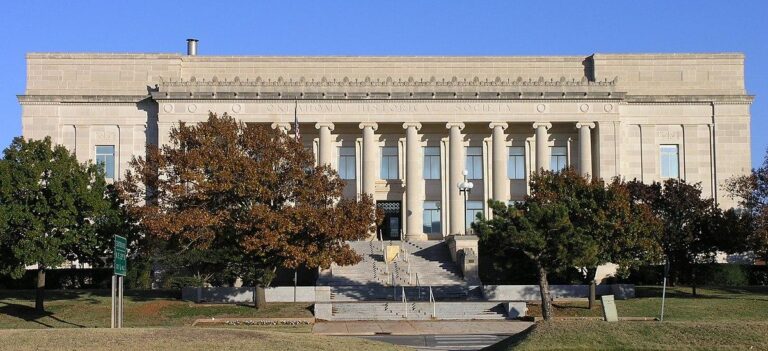Supreme Court Deadlock Maintains Funding Ban for Religious Charter School in Oklahoma
Supreme Court’s Tie Vote Upholds Denial of State Funding for Faith-Based Charter School
In a rare 4-4 split decision, the U.S. Supreme Court has left intact a lower court ruling that refused to grant state funding to a religiously affiliated charter school in Oklahoma. The deadlock means the school’s appeal to receive public funds to operate was effectively denied. The institution argued that its religious foundation should not exclude it from accessing taxpayer dollars, while opponents stressed the constitutional principle of church-state separation, warning against public financing of schools with overt religious teachings.
Legal analysts emphasize that this stalemate highlights the delicate balance the judiciary must maintain between protecting religious liberties and upholding secular public education policies. Key takeaways from the case include:
- Restrictions on Funding: Public money cannot be used to support religious instruction directly.
- Secular Operation Requirement: Charter schools must maintain a non-religious curriculum to qualify for state funding.
- Constitutional Framework: The First Amendment’s Establishment Clause remains central to these disputes.
| Issue | Result |
|---|---|
| Supreme Court Vote | 4-4 Tie |
| Lower Court Decision | Funding Denied |
| Eligibility for Public Funds | Rejected for Religious Use |
| Case Status | Remains Unresolved |
Understanding the Legal Landscape of Religious Charter School Funding in Oklahoma
The Supreme Court’s inability to reach a majority decision in this case underscores the ongoing legal complexities surrounding the allocation of public funds to religiously affiliated educational institutions. Central to this debate is the interpretation of the Establishment Clause of the First Amendment, which prohibits government endorsement or support of religion. While charter schools are publicly funded and expected to operate on a secular basis, attempts to open schools with explicit religious missions challenge this constitutional boundary.
Oklahoma law currently prohibits the use of taxpayer dollars for religious instruction, but proponents of faith-based charter schools advocate for a more expansive reading that would allow such schools to receive funding without breaching constitutional limits. The debate hinges on several critical issues:
- Public Funding Use: Can government money support schools with religious affiliations without violating constitutional protections?
- Curriculum Oversight: How to ensure that educational content remains secular even if the school’s mission is faith-inspired.
- Judicial Precedents: The impact of previous Supreme Court rulings on the permissible scope of public funding for religious institutions.
This judicial impasse leaves the future of religious charter schools in Oklahoma uncertain, emphasizing the need for clearer legal standards on the intersection of faith and public education.
Public Response and Prospects for Charter School Advancement
The Supreme Court’s deadlock has sparked polarized reactions among Oklahoma’s communities. Supporters of religious charter schools express frustration, arguing that the decision restricts parental rights and religious freedom in education. On the other hand, advocates for secular public education and church-state separation praise the ruling for preserving constitutional safeguards. As the decision, community forums and town hall meetings have become focal points for debate, with some residents concerned about potential shifts in funding away from traditional public schools.
The outlook for charter school expansion in Oklahoma is now clouded by legal uncertainty and political debate. Many education leaders suggest pivoting toward inclusive charter models that clearly separate religious identity from curriculum content to avoid future legal challenges. Others anticipate legislative efforts aimed at clarifying funding rules and the rights of charter schools nationwide.The table below outlines expected short- and long-term effects on charter school growth in the state:
| Area of Impact | Immediate Effect | Long-Term Outlook |
|---|---|---|
| Charter School Applications | Decrease in faith-based proposals | Increase in secular, community-oriented applications |
| Funding Oversight | Heightened legal examination | Potential reforms for clearer governance |
| Community Involvement | More public discourse | Stronger collaboration between charters and public schools |
- Parental Choice: Remains a divisive topic with growing calls for transparency.
- Legislative Initiatives: Expected to address the balance between education and religious freedom.
- Educational Equity: Emphasized to ensure all students receive quality education regardless of school type.
Recommendations for Harmonizing Religious Rights with Public Education Standards
To effectively manage the intersection of religious liberties and public education integrity, policymakers should develop explicit guidelines that honor constitutional protections while maintaining rigorous educational standards. One viable strategy is to implement obvious approval criteria for charter schools that clearly define the permissible role of religious content, ensuring the secular nature required for public funding. This clarity would reduce ambiguity in future legal disputes and provide education authorities with consistent frameworks.
Strengthening oversight is also crucial to guarantee that charter schools, including those with religious affiliations, adhere to inclusive curricula and nondiscriminatory enrollment policies. Key policy measures to consider include:
- Fostering Partnerships: Encourage collaboration between faith communities and public school boards to build mutual understanding and shared educational goals.
- Standardized Evaluations: Apply uniform academic assessments across all charter schools to ensure unbiased measurement of student outcomes.
- Separate Religious Instruction: Promote religious education outside the formal public school environment to maintain clear boundaries between faith and publicly funded education.
- Public Education Campaigns: Increase awareness about constitutional limits and the importance of secularism in publicly funded schools.
| Policy Focus | Recommended Action |
|---|---|
| Charter School Approval | Define clear secular standards |
| Accountability | Implement standardized testing |
| Religious Content | Separate venues for faith instruction |
| Community Engagement | Expand outreach and education |
Looking Ahead: Navigating the Future of Faith-Based Charter Schools
The Supreme Court’s split decision signals continued judicial caution in extending religious exemptions within public education funding frameworks. As stakeholders reassess their approaches, this ruling sets a significant precedent influencing future cases involving the funding of religiously affiliated charter schools nationwide. The debate over the place of faith-based education in publicly supported systems remains highly contentious, with policymakers, educators, and advocates closely monitoring forthcoming legal and legislative developments.




